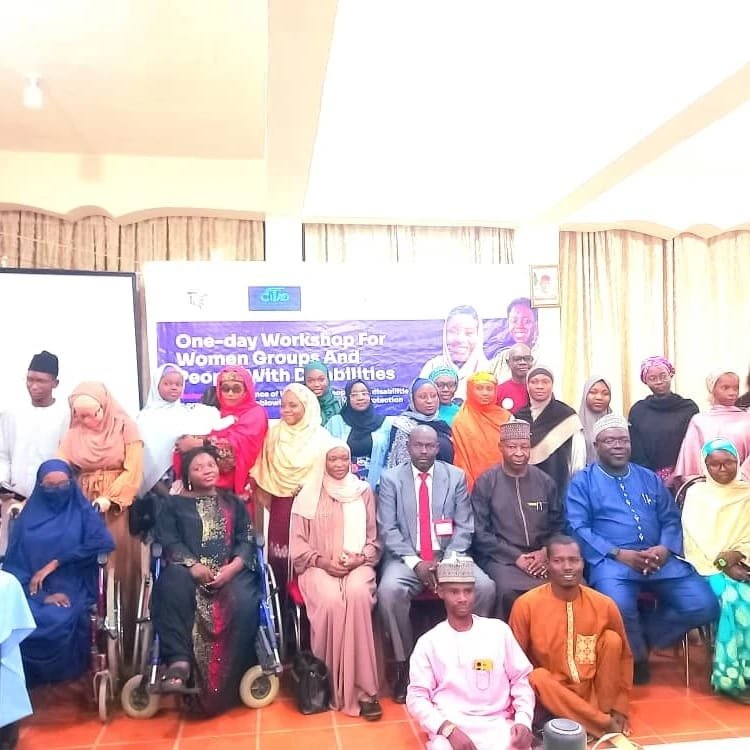By Mariya Shuaibu Suleiman
The African Center for Media and Information Literacy (AFRICMIL), in partnership with the Center for Information Technology and Development (CITAD), has called on women and persons with disabilities to be proactive in ensuring the eradication of corruption in the country.
The appeal was made during a training session organized by the AFRICMIL on the theme: The Importance of Women and People Living with Disabilities (PWDs) in promoting whistleblowing and whistleblower protection on Thursday, at Nassarawa Guest House in Kano.
In his remarks, the AFRICMIL Coordinator Dr. Chido Onumah who was represented by Mr. Godwin Onyeacholem, the workshop aimed to encourage the women groups and PWDs to adopt whistleblowing practices to expose corruption and other illegal activities that undermine societal well-being.
“Empowering women and people with disabilities not only protects the integrity of whistleblowing but also strengthens our democratic processes,”
Onyeacholem also noted that their unique perspectives can help uncover injustices and drive accountability within the society and there by encourage them to work towards fighting corruption in the State.
During the event, experts in journalism and academia, Dr. Rukayya Yusuf and Abdullateef Abubakar Jos, presented papers on whistleblowing methods that could assist security personnel in their efforts to eliminate corruption.
One of the resource persons, Dr. Rukayya Yusuf, a Senior lecturer at the Department of Information and Media Studies, Bayero University, said women and persons with disabilities have a significant role to play in the ongoing fight against corruption in the country.
She also noted that cultural and religious considerations are crucial due to societal norms, urging the women groups and the PWDs to integrate their efforts in fighting corruption by combating fraud, raising awareness, and fostering a culture of openness and patriotism.
On his part, Mr. Abdulateef Abubakar Jos highlighted the role of the media in promoting whistleblowing and protecting whistleblowers.
“The media provides a platform for reporting corruption with reliable facts, ensuring compliance with the law.”
He added that journalists need to investigate stories thoroughly before drawing conclusions.
One of the participants, Hamza Isah Bappa said the workshop was insightful and essential for combating corruption at the community level.
Bappa said he is committed to contribute his own quota through reporting such cases to the relevant authorities.
The event included representatives from women’s organizations and those for persons with disabilities.

